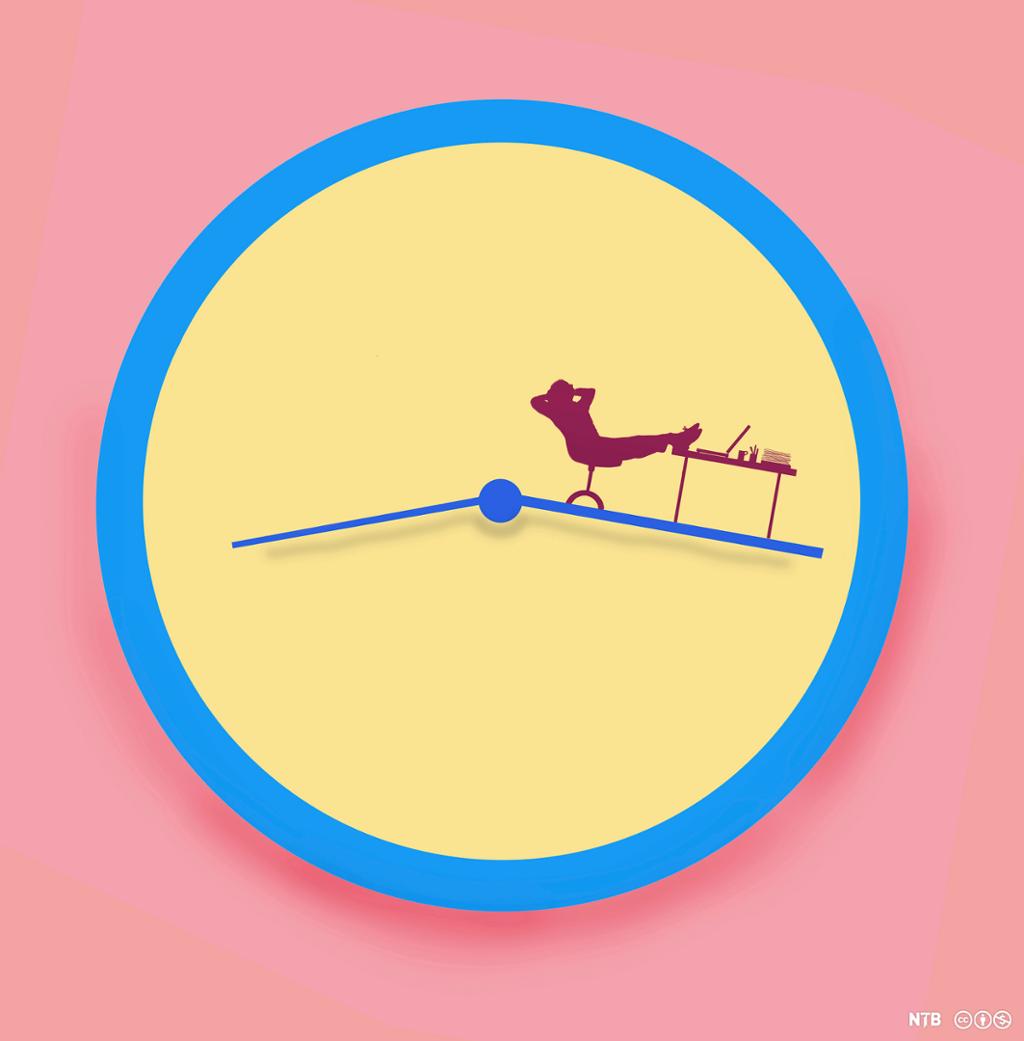Staying Motivated Through the School Year

Rather than thinking about the school year in terms of two large sections with a period of assessments at each end, it can be helpful to divide the year into shorter chunks. You could, for example, think of the school year as having four sections: During the first months of the first term, focus could be on settling into a routine, getting to know your teachers and your classmates better, and becoming comfortable at school.
The months leading up to the end of the term will have more assessments and a greater academic focus at most schools. The winter months of the new year are dark and cold; is this when you work most efficiently, sit at your desk with a cup of cocoa, or is it too easy to slip into bed with your phone? Do the last months of the term collide with your desire to stay out late in the warm weather, rather than studying or is spring all about studying for finals?
Decide what you will prioritise in each section of the school year. Think about what distracts you or stresses you out during different times of year and think about how you can find a balance by giving yourself different treats to stay motivated. Set yourself little goals for what you want to accomplish in each part of the school year, and plan for how you will reward yourself when you achieve those goals.
Most schools have plans listing the term's assessments and work. Use these lists as a starting point to make your own plans. Highlight important assessments, or assessments in subjects that you want to prioritise. Include your own private plans and look for any clashes. Are you having an important assessment on the same day as you are taking part in an decisive football match? Is there a crucial test on the day you are getting your driver’s licence? Is there a test on the Monday after you have traveled across the country for a concert? If you know when things are going to happen, you can plan how to get the work done, ask for an extension, or accept that you can’t do everything and make a priority of what is most important to you.
Make sure treats are included in your plan as well as chores. A busy period can be easier to get through if you have something to look forward to.
There are many distractions in modern life that can keep us from getting the rest we need. Try to set boundaries for yourself, by setting a bedtime and switching off all distractions. You've probably heard that it's better to leave electronic devices out of reach at night? If that's impossible, try switching the device to night mode and activating the ‘do not disturb’ settings, which allow you to choose who will be able to reach you at night.
It can be hard to sleep sometimes because we worry about work we haven't finished yet, or an upcoming test. Some of us can overcome this problem by having a quick look at the work, taking some notes, thinking through what we know about a subject, or making a short to-do list. Five to ten minutes may be enough to silence the nagging inner voices and help us sleep. Others feel that this method just makes them more stressed and less likely to sleep. Find out which group you belong to, and use this method if it works, or avoid it if it doesn’t.
If you are out of time to prepare for the test or to finish your work, the main thing to do is to forgive yourself and move on. You made different priorities this time, and that's OK. Nothing is gained by worrying or beating yourself up about it. If not doing as well as you could have done upsets you, learn from that and focus on making different choices next time.
Sacrificing rest to get more work done will only work in the short term for most people. Resting is a biological necessity, not a waste of time.

Getting up in the morning can be hard for anyone, especially in the winter months. Try to make mornings a calm and pleasant time that you look forward to. Rushing into class a bit late and on an empty stomach is not the best starting point for learning. Plan little treats for yourself that will makegetting out of bed on time a nicer experience. These can be small things, like your favourite sandwich topping, a nice smelling shower soap, texting a friend, or whatever else makes your morning a little brighter.
Also accept that, try as you might, there will be mornings when your little treats won’t make your morning better. Some mornings are just unpleasant. The important thing to remember is that tomorrow may always be better.
School is harder if it is just something that happens to you. Take charge and get involved. One good method to employ is to ask questions. Ask when you are unsure, ask to clarify, ask to learn more. Ask your teacher and ask your classmates. Engaging yourself will make you more interested, it will help you understand things more fully, but most importantly it will make you an active participant in your own learning. It will also make schoolwork seem less like an unwelcome chore.
While it is easier to learn when we are doing something we enjoy, school work will not always be fun or entertaining. However, if we face it head on, engage with it, and try to learn as much as we can, it will get easier, more fun, and less stressful.
When we read and work on tasks in class, we are usually using our working memory. Our working memory remembers what we need for the task at hand, but it does not have a lot of storage capacity. This is why you may have worked dedicatedly on a task in one class, but by the time you reach your next class, you’d struggle to explain to someone what you had just been working on.
To learn things, we need to move what we learn into our long-term memory. We do that best by taking a few minutes at the end of accomplishing a task and thinking through what we have done: What did I just read? What were the main points made? What did I learn from solving this task? Even more efficient than only thinking about it, is discussing it with someone else and explaining it to them. Another strategy may be to keep a written log where you make a note of the most important things you learned in class. This may seem like a waste of time, but if you follow this routine you will remember much more from lessons, which means that you will have to spend a lot less time cramming for tests and exams.
Most subjects will have elements of things you enjoy, and elements of things you find less fun. Pay attention and notice when the work is comfortable, and when you find it harder. It is easier to work using techniques we enjoy, so do as much of that as you can; as long as the work is relevant for one of your subjects you are likely to learn useful things.
It can be easy to think that 'I don’t have the time to do this well, so I just won’t bother doing it at all.' The problem with this, is that when we do nothing, we accomplish nothing. It is the same with schoolwork as with exercise: five minutes is better than no minutes. While some students can happily work for hours at a time, others need breaks and incentives.
One method you may use to structure your work is to make a to-do list of what you have to accomplish. It is better to break your work into several small steps. Rather than 'prepare for the test', it could instead say: 'read page 23-25, 'revise the tasks', 'take notes', etc. Clear away all distractions and set a timer for a period of time for which you will work efficiently. Start by setting the timer for 15 minutes. If that goes well, go up a little; if it doesn’t, go down. When the time is up, take a five-minute break or allow yourself a treat. Reset the timer and continue working in intervals until you have accomplished your task. Make sure you cross out the work you have completed on your to-do list. The technique described here, is a version of the Pomodoro Technique, which you can find more information about online.

Some students find it easy to maintain a comfortable balance between work and leisure time, while others struggle to not let work take up all their time. Too much of anything is bad; even too much schoolwork. Set yourself a maximum limit for how much to work on an ordinary day, and how much work to do in preparation for an assessment. Whatever you don’t accomplish within the set amount of time, you did not have time for.
How much time you should reserve for schoolwork will vary from person to person. However, your time spent at school + doing homework should not exceed the hours you would work in an average job. Make sure you are not exhausted when you reach your maximum limit. You need time to have fun and recharge too.
Nobody can do everything. If you have a job and activities outside of school that demand your time, you must accept that there will be less time for school and that this can have consequences for what you get done. While some people thrive when they are busy and are able to juggle many different things, others need to have more time to do their best work. You have to decide what is important to you, and what will be best for you in the long run. Input from teachers, parents, friends, or others you trust may be a guideline, but you are old enough to make decisions about how to manage your time yourself. However, it is a good idea to take a close look at your time management, and consider if the way you are doing things now is the best way to accomplish what you want.
Guoskevaš sisdoallu
Tasks for the article Staying Motivated Through the School Year